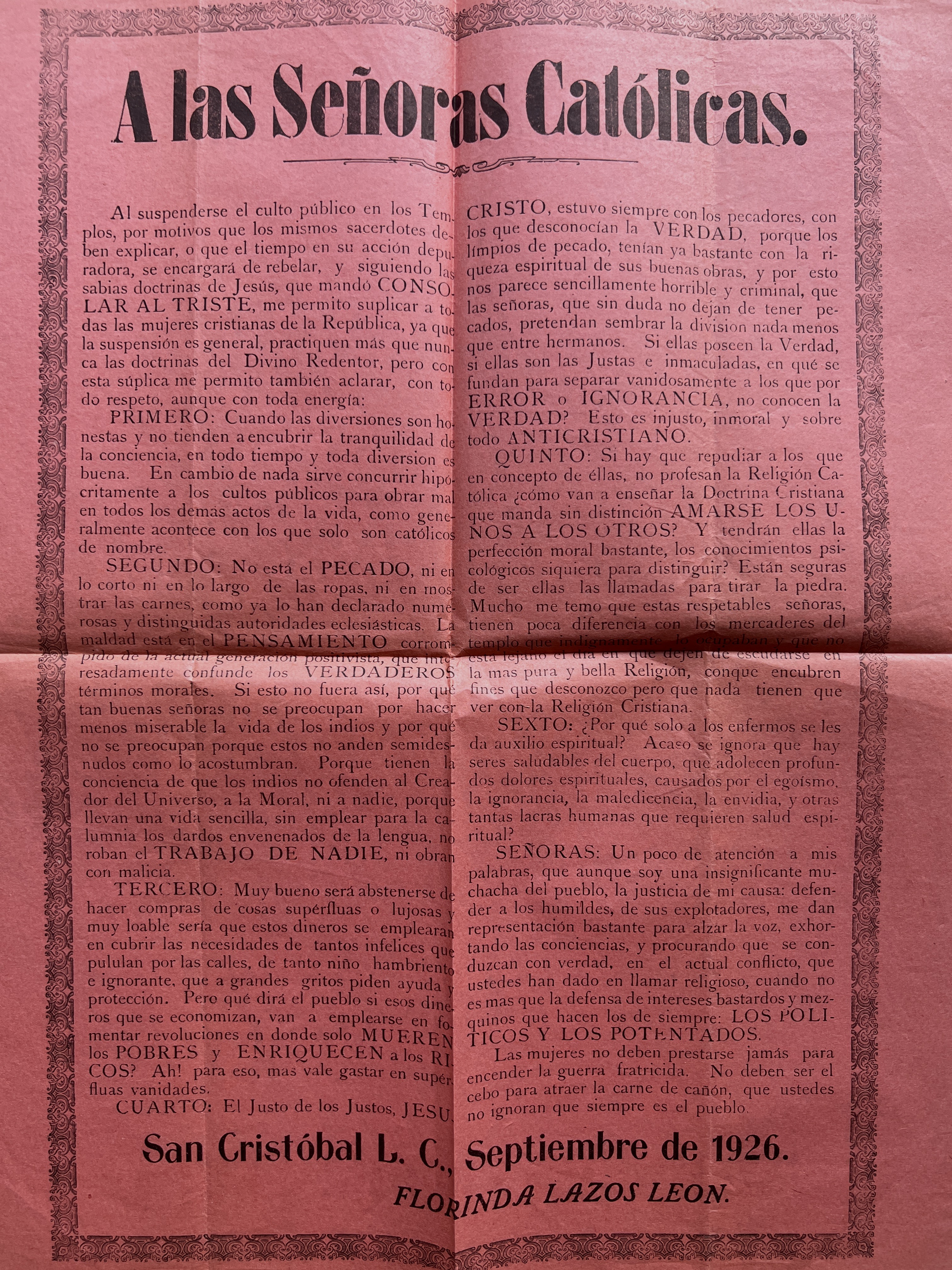GRAPH BOOKS: PRINTED MATTER FROM RADICAL ART AND SOCIAL MOVEMENTS.
FEMINIST HISTORIANS OF MATERIAL CULTURE.
Á las Señoras Católicas
Florinda Lazos León, 1926

[Lazos León, Florinda]. Á las Señoras Católicas. San Cristóbal [de las Casas], Mexico: np, 1926. Broadside. 46.5 x 33 cm. Thin colored paper, creased where folded, a few v minor defects at edges, otherwise very good condition.
Revolutionary soldadera, suffragist, journalist, and labor organizer, Florinda Lazos León (1898-1973) advanced feminist and labor causes throughout Mexico, but particularly in her home state of Chiapas. During the Revolution she was a nurse in the Carrancista Liberating Army of the South and participated in organizing both the first Congress of Women Workers and Peasants of Chiapas (1919) and the first National Congress of Women Workers and Peasants (1931).
Scholarship on Mexican suffrage often omits the fact that Chiapas was the first Mexican state to grant women full rights of citizenship (“just” the fourth to give them the right to vote). In 1926, Lazos León became the first woman elected to the Chiapas legislature, more than a quarter century before women won the right to vote nationally. Though a few women had been elected in the Yucatan in 1924, they were not allowed to serve, making Lazos León the first woman ever to serve in a state-level elected office in Mexico.
This broadside was published after Lazos León announced her candidacy in a July issue of the worker’s party newspaper that she edited, La Gleba, and shortly before her November election. It is addressed to the women of her hometown, San Cristóbal de las Casas. The text is a finessed position on the Cristeros Rebellion–a violent conflict between the Mexican state and the Catholic Church in the 1920s. The seeds of the rebellion began with the 1917 Mexican Constitution. It restricted the political and economic power of the Church through several measures: requiring primary schools to be secular, nationalizing their property, and banning public ceremonies; the Church’s power was further reduced by additional statues and enforcement beginning in 1924 during the Calles presidency. Following increased anticlerical persecution, the Catholic hierarchy refused to conduct public mass and closed their churches in 1926. This led to an unusual role for women, who became the leading lay ministers of their communities.
In the present document, Lazos Leon implores women not to be drawn into the conflict, or as she wrote, used as “cannon fodder” by powerful government and religious interests. Instead, she asks that they stay true to the roots of their Christianity and protect poor and working people (including the rights of indigenous peoples).
Truly a rare surviving primary document authored by Lazos León who has no author record in WorldCat.
SOLD